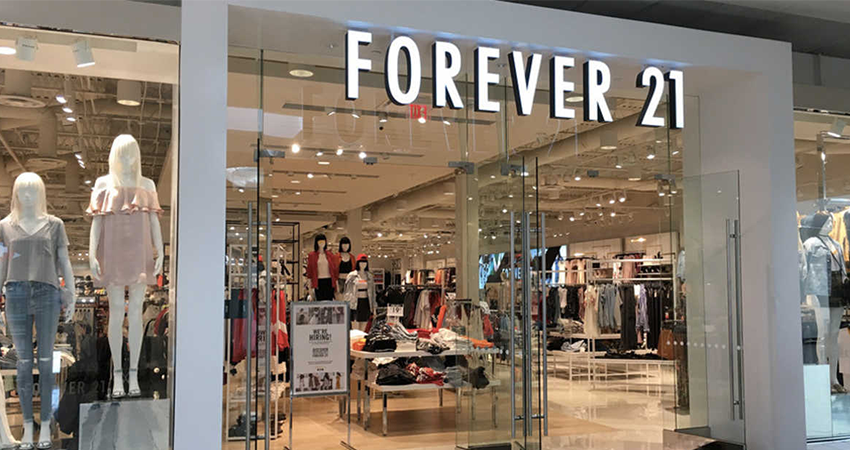Forever 21 has struck an $81 million deal to sell its assets to a group of mall owners and management operations, including Simon Property Group, Brookfield Properties and brand development/marketing venture Authentic Brands Group.
The young women’s fast-fashion brand announced in September it was filing for bankruptcy and would cease operations in 40 countries, including Canada and Japan, while closing 178 stores in the U.S. and 350 overall. It continued ecommerce on its website and operated stores in the U.S., Mexico and Latin America.
In a holiday season letter to customers posted on its website, Forever 21 said, “With the holiday season upon us, we wanted you to know that Forever 21 is stronger than we’ve ever been … .”
A statement this week on the potential sale quoted by ABC News and other media said, “Once approved, the agreement will allow Forever 21 to come out of bankruptcy, keeping its headquarters, stores and ecommerce operations open, providing fashions and trends that customers know and love for years to come.”
CNN reported that the sale would include all of Forever 21’s assets, including stores and the RileyRose beauty brand. The deal must be approved by a bankruptcy judge, making the purchasing group a “stalking horse bidder,” CNN said, noting other potential buyers have until Feb. 7 to offer bids.
Read All of Forever 21’s bankruptcy court filings
When Forever 21 announced it was filing for bankruptcy, Linda Chang, a Forever 21 executive vice president, told The New York Times, “What we’re hoping to do with this process is just to simplify things so we can get back to doing what we do best.”
The Times said ecommerce made up 16% of Forever 21’s sales in 2018, while overall revenue dropped to $3.3 billion that year, down from $4.4 billion in 2016.
“Consumers were seeking Forever 21 out online, but weren’t buying,” Stephen Kraus, head of digital insights for marketing analytics company Jumpshot, said last fall. “So far in 2019, Forever21.com ranks 14th among all online retailers in the women’s clothing category in terms of transaction volume, pulling about 1.5% share of transactions.”
“Forever 21’s business model of an ever-changing display of what’s new is being eclipsed by firms like Rent the Runway and thredUP with business models that promote sustainability,” said Dave Bernstein, SVP, Retail Lead, North America at Publicis Sapient.
In another recent sign of ecommerce’s impact on malls and physical stores, fashion retailer Express announced in January it would close 91 stores.
That announcement comes roughly a year after former Express president and CEO David Kornberg stepped down and gave up his seat on the board after a disappointing 2018 holiday season.
One of the bidders for Forever 21, Authentic Brands Group, purchased Barneys last fall, shortly after the luxury retailer had filed for bankruptcy.

